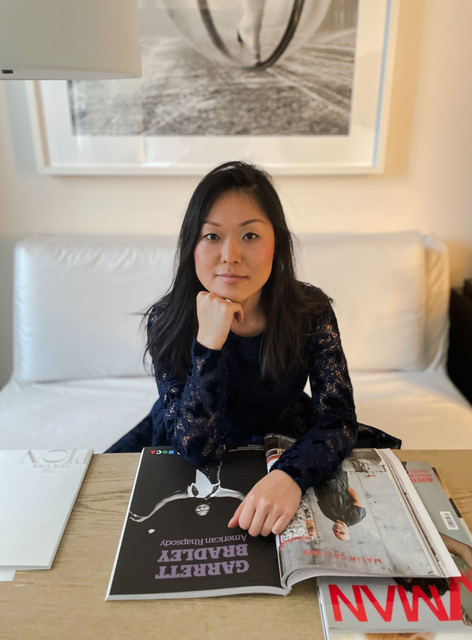This story is from Prattfolio’s feature “Pivot Points,” on Pratt alumni navigating moments of uncertainty, change, and transformation in their life and work.
Elle Liu was having a crisis of identity. “I hope this doesn’t sound too cliché,” says the interior designer–turned–founder, reflecting back to the months after she’d decided to start her own business. “It’s honestly a little silly how strongly we tie ourselves to a sense of who we are—at least, I did. For me, that identity was being a designer. From a very young age, it was the path I set for myself, and I never really questioned it.”
Before she launched THEORÓ, her tea company, last year, Liu’s trajectory had taken her from the art program at Tsinghua University Middle School in Beijing, to writing columns on global design trends at her high school magazine and devouring international design magazines at the newsstand every weekend, to discovering her love of product design via Droog, the vanguard Dutch design collective. Then it brought her to Pratt’s School of Design, first the undergraduate Industrial Design program and later graduate Interior Design.
While she was still an undergraduate, she took the first step into what she thinks might have been the best job of her life: an internship at AERIN, a luxury lifestyle brand founded by Aerin Lauder, which led to a role on its small design team. It was one of those charmed instances where colleagues click and the work is expansive and interesting. “We had such great chemistry,” she says. “I got to work directly with the EVP and VP of design—who, fun fact, is also a Pratt Industrial Design alumna—and they were both the kindest, most inspiring people. I was able to contribute to so many things—decorative objects, lighting fixtures, showroom vignettes—you name it. Plus, the office had this incredible design book collection that I had full access to. I spent so much time just flipping through those books and soaking it all in.”
With all she was learning and doing, her ideas about design were transforming, from objects to environments, or as Liu puts it, “the endless possibilities of what a space could be.”
She returned to Pratt to study interior design as a graduate student, and went on to work at Rockwell Group, the architecture and design firm, with a portfolio of high-end hotels. Liu also dived into the subject of spatial design among fellow practitioners with her podcast, The Right Angle, which aimed to broaden the conversation beyond the conventional understanding of interior design and architecture, involving professionals from across industries.
“My training at Pratt and my experience as a designer gave me the skills to handle so many different aspects of this process, almost effortlessly.”
When she saw an opportunity to explore another avenue, this time from the founder’s seat, she says she didn’t hesitate. “I’ve always been deeply interested in traditional Chinese culture—especially TCM [Traditional Chinese Medicine], tea, and various forms of craftsmanship,” she shares. “I saw an opportunity and felt the timing was right to create a luxury tea brand focused exclusively on Chinese tea.”
While a lot has been new, her background in design has been a launchpad. “I once saw a quote at a design event that said, ‘MFA is the new MBA,’ and honestly, I think there’s some truth to that,” she says. “My training at Pratt and my experience as a designer gave me the skills to handle so many different aspects of this process, almost effortlessly.”
One thing she learned stands out: “Understanding the idea of a concept—how to form one and use it to guide the design process—has been a huge asset for me personally,” she says.
For THEORÓ, Liu worked on tea curation with a tea master in Beijing who is also a family friend, but when it came to the brand, she built it from scratch. “From the website and brand positioning to the language, packaging, and social media content, I’ve been hands-on with every aspect of the business.”
While she didn’t skip a beat creating the business, realizing the shift within herself happened more slowly. “When people would ask me, ‘What do you do?’ For a while, I wasn’t sure how to answer. It took a few months to embrace this new chapter and feel comfortable saying I’m a founder rather than an interior designer,” Liu says. “What really helped me personally was focusing on authenticity. . . . It was about being honest with myself about what I care about and allowing that to guide me forward.”![]()
